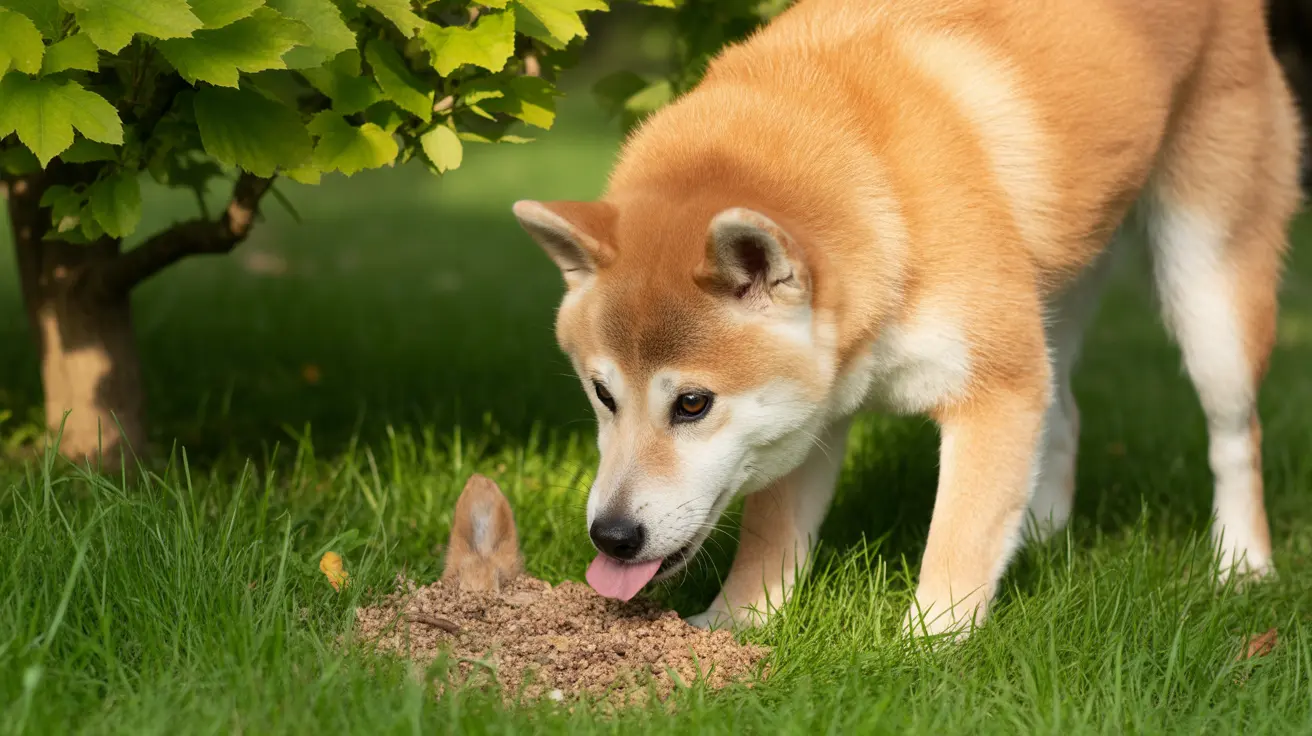Understanding the Natural Instinct
Dogs are natural scavengers with complex feeding behaviors inherited from their wild ancestors. Their keen sense of smell can detect the nutrient-rich properties in rabbit droppings, which often contain partially digested plant material and beneficial bacteria. This natural instinct, combined with curiosity and opportunity, frequently leads dogs to investigate and consume rabbit feces.
Common Reasons Behind the Behavior
Nutritional Seeking
Many dogs eat rabbit poop because they're instinctively seeking additional nutrients. Rabbit droppings are high in B vitamins and fiber, which some dogs might be lacking in their regular diet. This behavior can sometimes indicate that your dog needs dietary adjustments or is experiencing digestive issues.
Behavioral Factors
Sometimes, dogs eat rabbit poop out of simple curiosity or boredom. Puppies are especially prone to this behavior as they explore their environment through taste. Additionally, some dogs may develop a habit of eating rabbit droppings if they find the taste or texture appealing.
Health Implications and Risks
Immediate Health Concerns
While eating rabbit droppings is generally less dangerous than consuming other types of animal waste, it's not entirely risk-free. Most dogs won't experience serious health issues from occasional consumption, but some may develop mild gastrointestinal upset, including:
- Temporary diarrhea
- Mild stomach discomfort
- Vomiting in sensitive dogs
Long-term Health Considerations
Regular consumption of rabbit droppings could potentially expose your dog to:
- Parasites (though relatively rare)
- Bacterial infections
- Digestive system imbalances
- Potential exposure to environmental toxins
Prevention and Training Strategies
Environmental Management
The most effective way to prevent your dog from eating rabbit poop is to control their environment:
- Regular yard cleaning to remove droppings
- Using barriers to block access to areas frequented by rabbits
- Keeping dogs on a leash in areas with high rabbit activity
Training Techniques
Consistent training can help discourage this behavior:
- Teaching a strong "leave it" command
- Positive reinforcement when ignoring droppings
- Providing engaging alternatives during walks
When to Consult a Veterinarian
While eating rabbit droppings isn't usually an emergency, certain situations warrant veterinary attention:
- Sudden increase in the behavior
- Signs of illness or digestive issues
- Changes in appetite or energy levels
- Concurrent unusual behaviors
Frequently Asked Questions
Why do dogs eat rabbit poop and is it harmful to them?
Dogs typically eat rabbit poop due to natural scavenging instincts, nutritional seeking behavior, or curiosity. While generally not immediately harmful, it can occasionally cause mild digestive upset and should be discouraged.
Can eating rabbit poop cause parasites or illnesses in my dog?
While the risk is relatively low, dogs can potentially contract parasites or bacterial infections from rabbit droppings. Most rabbit-specific parasites don't affect dogs, but it's still best to prevent this behavior.
How can I stop my dog from eating rabbit poop during walks or in the yard?
Use a combination of environmental management (cleaning your yard regularly), training (teaching "leave it" commands), and providing adequate exercise and mental stimulation to prevent boredom-based scavenging.
Is my dog eating rabbit poop a sign of nutritional deficiencies or medical problems?
While it can indicate nutritional deficiencies, it's often just natural behavior. However, if accompanied by other unusual symptoms, consult your veterinarian to rule out underlying health issues.
What health risks should I watch for if my dog frequently eats rabbit feces?
Monitor for signs of digestive upset, changes in appetite or energy levels, and unusual stool consistency. If you notice any concerning symptoms, contact your veterinarian for evaluation.
Conclusion
While eating rabbit droppings is a common canine behavior, it's best to discourage it through proper training and environmental management. Understanding why dogs engage in this behavior helps us address it effectively while ensuring our pets remain healthy and happy. Remember to consult with your veterinarian if you have specific concerns about your dog's habits or health.






